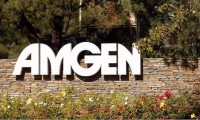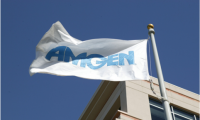-
Biosimilars ‘Fulfilling Their Promise’ of Lowering Biologic Prices
- Source: drugdu
- 200
- June 9, 2023
-
BMS pitches Breyanzi as the first CAR-T for CLL. But will a single-arm trial persuade the FDA?
- Source: drugdu
- 151
- May 27, 2023
-
Amgen, J&J ink patent settlement
- Source: drugdu
- 105
- May 25, 2023
-
Ironwood to Pay $1B to Acquire VectivBio, Late-Stage Digestive Therapy
- Source: drugdu
- 137
- May 24, 2023
-
Allergan’s new skin-smoothing product gets FDA nod—with novel delivery mechanism
- Source: drugdu
- 118
- May 19, 2023
-
Amgen and TScan Therapeutics partner to identify new Crohn’s disease targets
- Source: drugdu
- 149
- May 16, 2023
-
Sandoz taps Evotec in long-term biosimilar development and manufacturing deal
- Source: drugdu
- 203
- May 15, 2023
-
Drugmakers take sides in Amgen, Regeneron fight over antibody patents
- Source: drugdu
- 170
- April 25, 2023
-
FDA again knocks back Alvotech’s Humira biosimilar
- Source: drugdu
- 202
- April 17, 2023
-
FDA, citing safety concerns, places partial hold on Merck KGaA’s MS drug
- Source: drugdu
- 200
- April 13, 2023
your submission has already been received.
OK
Subscribe
Please enter a valid Email address!
Submit
The most relevant industry news & insight will be sent to you every two weeks.













